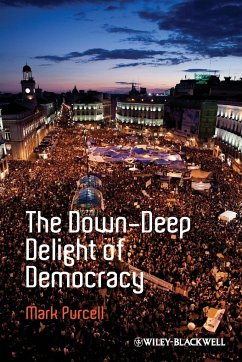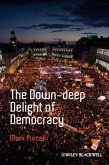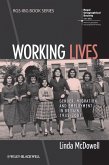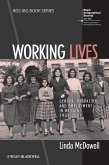This volume explores issues central to the civil uprisings that swept the world in 2011. It offers profound analysis of the relationship between democracy and neoliberalism in an urban context, explaining how democracy can help us evolve socially, and how it can be used to revivify the political left.
Arguing that the hegemony of the neoliberal/capitalist nexus must be challenged if we are to address the proliferating challenges facing our world, this inspiring book explains how democracy can revive the political fortunes of the left.
Explores issues central to the civil uprisings that swept the world in 2011, drawing profound connections between democracy and neoliberalism in an urban context
Features in-depth analysis of key political theorists such as Gramsci; Lefebvre; Rancière; Deleuze and Guattari; and Hardt and Negri
Advocates the reframing of democracy as a personal and collective struggle to discover the best in ourselves and others
Includes empirical analysis of recent instances of collective action
Hinweis: Dieser Artikel kann nur an eine deutsche Lieferadresse ausgeliefert werden.
Arguing that the hegemony of the neoliberal/capitalist nexus must be challenged if we are to address the proliferating challenges facing our world, this inspiring book explains how democracy can revive the political fortunes of the left.
Explores issues central to the civil uprisings that swept the world in 2011, drawing profound connections between democracy and neoliberalism in an urban context
Features in-depth analysis of key political theorists such as Gramsci; Lefebvre; Rancière; Deleuze and Guattari; and Hardt and Negri
Advocates the reframing of democracy as a personal and collective struggle to discover the best in ourselves and others
Includes empirical analysis of recent instances of collective action
Hinweis: Dieser Artikel kann nur an eine deutsche Lieferadresse ausgeliefert werden.
'This is an exceptional book. It is dense, closely reasoned, scholarly, indispensable as a reference, yet impassioned and oriented to practical political activity. It traces the history of democracy, its evolution in philosophy and in practice, and views democracy as a never-ending process, building on what exists, ever moving to what could be. It is a provocation both to thought and to action, aimed both at educators and Occupy activists.' -- Peter Marcuse, Professor Emeritus of Urban Planning, Columbia University
'Mark Purcell criticizes neoliberals and neo-Keynsians alike as supporting oligarchy. He establishes democracy as a transcendent goal--but one that is a process always in a state of becoming, not an end point. Whether or not one agrees with him on the supremacy of democracy above all other ends, his views are challenging and enlightening.' -- Susan S. Fainstein, Harvard University Graduate School of Design, USA
'Mark Purcell criticizes neoliberals and neo-Keynsians alike as supporting oligarchy. He establishes democracy as a transcendent goal--but one that is a process always in a state of becoming, not an end point. Whether or not one agrees with him on the supremacy of democracy above all other ends, his views are challenging and enlightening.' -- Susan S. Fainstein, Harvard University Graduate School of Design, USA
"Summing Up: Recommended. Upper-division undergraduate and graduate collections." (Choice, 1 December 2013)
"You can't help but pick up a copy of The Down-Deep Delight of Democracy (DDDD) by Mark Purcell. The texture of its title - quadruple 'D' - and the promise of delight are irresistible. Its timely focus on democracy and the potential we have to become (more) democratic have much to offer critical geography. The idea that democratic futures can be grown from present democratic struggles and that as scholars we might contribute to this growth by recognizing and valuing them is especially important for future research agendas ... Purcell's point is that people are finding their democratic strength in the world ... DDDD is a great start toward an examination of democratic possibilities." (Antipode, 1 October 2013)
"You can't help but pick up a copy of The Down-Deep Delight of Democracy (DDDD) by Mark Purcell. The texture of its title - quadruple 'D' - and the promise of delight are irresistible. Its timely focus on democracy and the potential we have to become (more) democratic have much to offer critical geography. The idea that democratic futures can be grown from present democratic struggles and that as scholars we might contribute to this growth by recognizing and valuing them is especially important for future research agendas ... Purcell's point is that people are finding their democratic strength in the world ... DDDD is a great start toward an examination of democratic possibilities." (Antipode, 1 October 2013)








